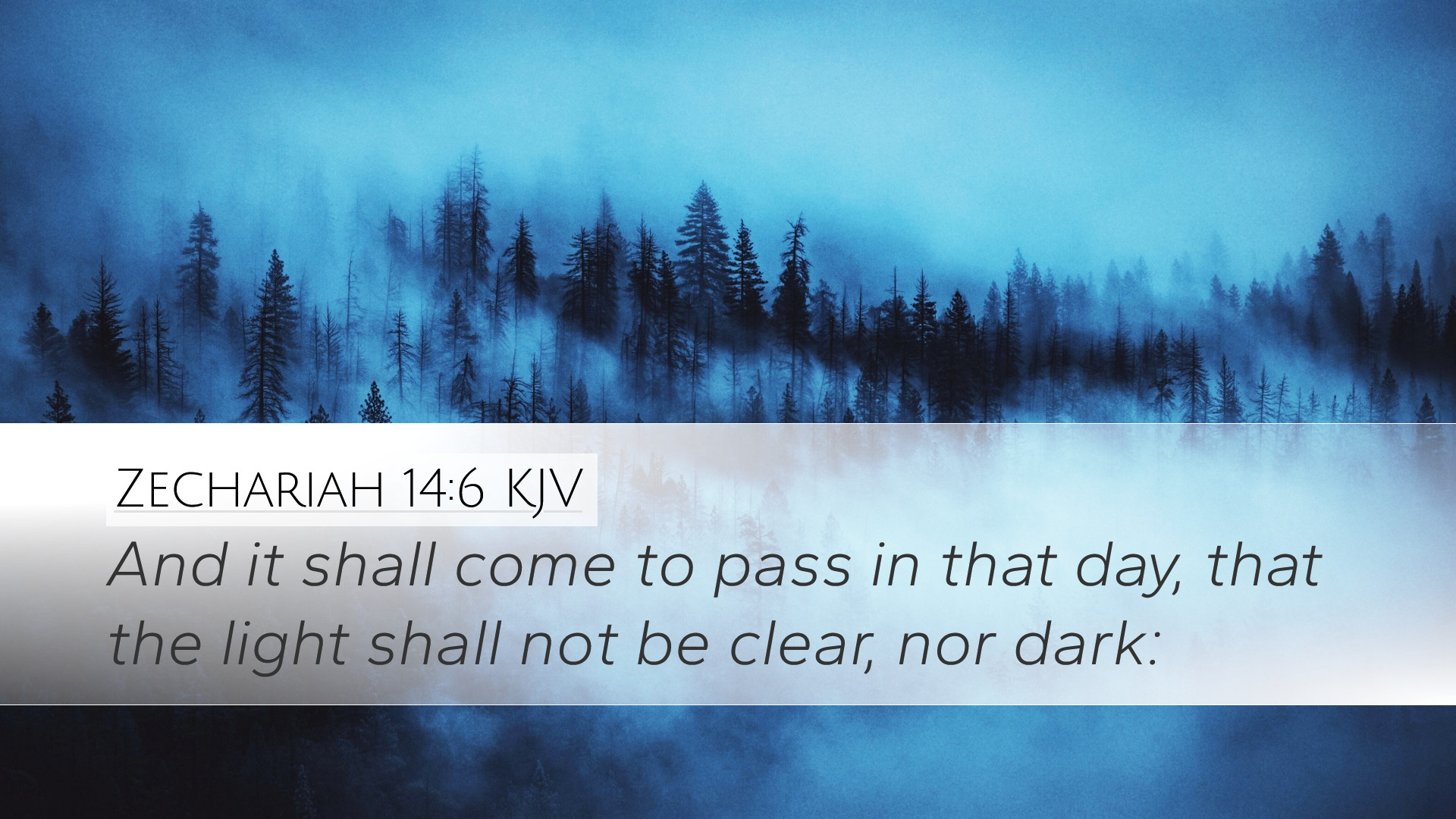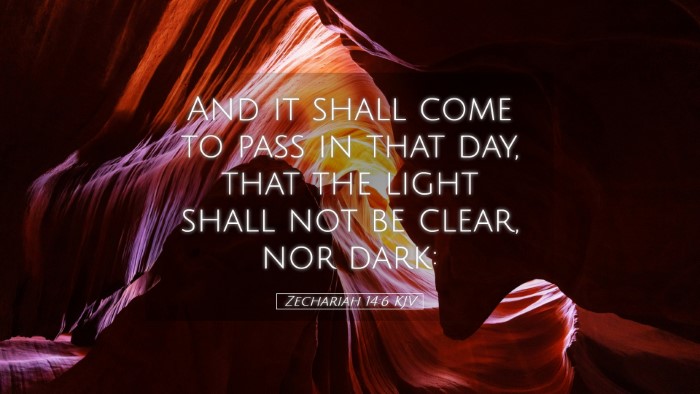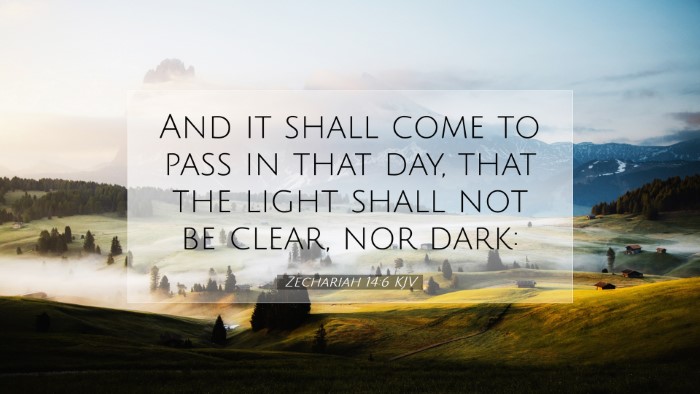Commentary on Zechariah 14:6
Verse: Zechariah 14:6 - "And it shall come to pass in that day, that the light shall not be clear, nor dark."
Introduction
The Book of Zechariah is a prophetic text laden with symbolic language and vivid imagery, which serves to convey the profound truths regarding God's plan for Israel and the world. In Chapter 14, Zechariah delivers a vision of the final restoration of Jerusalem and the coming of the Lord. Verse 6 presents a poignant reflection on a future reality characterized by a divergence from the natural order of light and darkness, which has significant theological implications.
The Nature of Light
Matthew Henry emphasizes that light is often a symbol of knowledge, joy, and divine presence. In this context, the passage intimates a day when the light, which typically represents God's truth and glory, will exhibit an unusual quality. The ambiguity of "not clear, nor dark" suggests a transition into a divine state where God’s presence may not be perceived in the usual manner.
Albert Barnes notes that the lack of clear light points to a day of great transformation, where ordinary perceptions are changed. This transformation could illustrate the onset of a new dispensation in which God’s kingdom comes in fullness, surpassing the limitations of previous earthly experiences of His presence.
Theological Implications
The phrase "shall not be clear, nor dark" raises questions concerning God's revelation and its accessibility to humanity.
Adam Clarke suggests that this could symbolize a time when the distinctions between sacred and secular will blur, as God's presence envelops all creation in a manner not previously experienced.
This theological nuance reminds scholars and theologians that the divine light will transcend conventional boundaries. The resultant effects upon worship, understanding, and community will be profound; indeed, a divine communion unlike any that has come before.
The Day of the Lord
Matthew Henry correlates this verse with the eschatological implications of the "Day of the Lord," suggesting that the coming of Christ will culminate in a new era characterized by His overwhelming light and presence, altering the very fabric of perception on earth.
- This event is awaited by believers, a day foretold through numerous prophecies, igniting hope and anticipation.
- The transformation of light signifies not only the glory of God but also the ethical and moral renewal of those who dwell in such light.
Application for Today
For pastors and students of the Word, Zechariah 14:6 serves as a reminder of the hope that Christians hold for the future.
Albert Barnes encourages believers to live in anticipation of the consummation of God’s kingdom, which suggests that current spiritual experiences are but a shadow of what will ultimately be reality.
- This expectation challenges Christians to seek a deeper relationship with God and to cultivate lives that reflect His light in the world.
- Furthermore, it calls for unity among believers, as anticipation of Christ’s reign should draw the church together in mission and purpose.
Conclusion
Zechariah 14:6 encapsulates a powerful prophetic utterance that transcends mere historical analysis. Through the writings of Matthew Henry, Albert Barnes, and Adam Clarke, the timeless nature of this verse is unveiled, offering pastors, theologians, and scholars a rich tapestry of insights into the character of God’s revelation through light and darkness.
As we reflect on this scripture, let us embrace the transformative work of God that invites us into a brighter, clearer understanding of Him, anticipating the day when His presence will illuminate the heavens and the earth. In learning from the past and engaging with the present, believers are reassured of the promise that the light will come—one that is neither clear nor dark but wholly enveloping.


